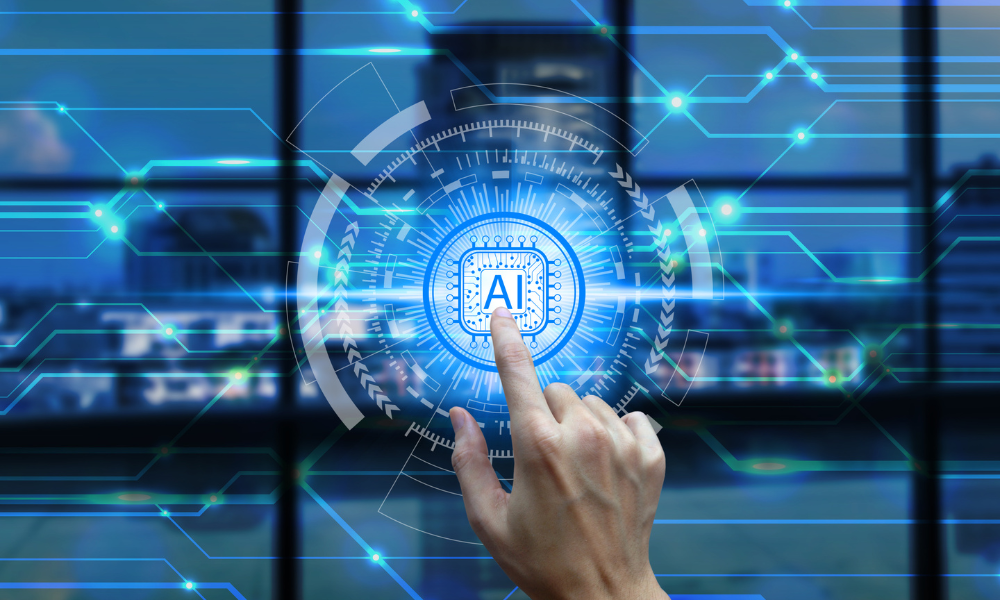
Artificial Intelligence (AI) is no longer a futuristic concept—it’s the backbone of how businesses, educators, and individuals operate today. With the rise of Generative AI models such as ChatGPT, Gemini, Claude, and others, the way we interact with data, content, and problem-solving has fundamentally transformed. This new era requires not just awareness of AI but structured Artificial Intelligence training to harness its power responsibly and effectively.
In this blog, we’ll explore why AI training is essential in the age of Generative AI, the skills it develops, who can benefit from it, and how you can position yourself for success in an AI-driven world.
The Rise of Generative AI: Why Training Matters
Generative AI tools like ChatGPT (OpenAI), Gemini (Google DeepMind), and Claude (Anthropic) have gained massive popularity due to their ability to create human-like text, generate code, produce images, and even simulate reasoning. These advancements are more than just technological marvels—they’re reshaping industries.
- Content creation is being accelerated with AI-generated articles, videos, and designs.
- Customer service is enhanced with smart chatbots that learn and adapt.
- Decision-making is supported with predictive analytics and real-time data insights.
- Software development is evolving with AI-generated code and debugging.
However, without proper training, individuals and organizations risk misusing these tools, facing ethical challenges, or missing out on opportunities. AI training provides structured knowledge, practical skills, and critical awareness to use Generative AI effectively.
What is Artificial Intelligence Training in the Generative AI Era?
Artificial Intelligence training goes beyond traditional coding or data analysis. In today’s context, it covers a holistic approach to AI, combining technical knowledge, ethical responsibility, and strategic application.
Key aspects of AI training programs in the Generative AI age include:
1.Understanding AI Fundamentals
- Core concepts: machine learning, deep learning, and neural networks.
- How Generative AI differs from predictive AI.
2.Hands-on with Generative AI Tools
- Using ChatGPT, Gemini, and other models for content, coding, and business tasks.
- Experimenting with APIs and AI integration in real-world workflows.
3.Ethics and Responsible AI
- Bias detection and mitigation.
- Understanding the societal impact of Generative AI.
4.Business Applications
- AI-driven decision-making for leaders.
- Enhancing productivity, creativity, and innovation with AI tools.
5.Future Skills Development
- Prompt engineering.
- AI project management.
- Human-AI collaboration skills.
Why Professionals Need Generative AI Training
Generative AI is not limited to tech experts. Its applications are universal, making AI training valuable across industries. Here’s how different professionals benefit:
Business Leaders:
Learn how to leverage AI for data-driven decisions, strategy development, and operational efficiency.Marketers:
Use AI for customer insights, automated campaigns, personalized content, and trend prediction.Educators:
Enhance teaching methods with AI tutoring, smart grading, and interactive learning experiences.- Developers & IT Professionals:
Accelerate coding, automate repetitive tasks, and build AI-enhanced applications. - Students & Job Seekers:
Gain in-demand AI skills to stand out in competitive job markets.
The Skills You Gain Through AI Training
Enrolling in AI training in the Generative AI age equips you with practical and future-proof skills:
- Prompt Engineering: Crafting effective prompts to get the best responses from models like ChatGPT and Gemini.
- Critical AI Literacy: Understanding limitations, biases, and potential risks.
- Automation & Productivity Skills: Designing workflows where AI handles repetitive tasks.
- Data Analysis with AI: Leveraging models for real-time insights.
- AI Strategy Building: Aligning AI adoption with business goals.
These skills ensure that learners don’t just use AI as a tool but understand how to maximize its potential responsibly.
Challenges Without Proper AI Training
While Generative AI is powerful, using it without proper training can lead to problems:
- Inaccurate or misleading outputs if prompts are poorly designed.
- Data security risks when sensitive information is mishandled.
- Over-reliance on AI, leading to reduced critical thinking.
- Ethical dilemmas, such as plagiarism or biased content generation.
Training ensures users recognize these risks and adopt best practices to mitigate them.
The Future of AI Training: Continuous Learning
AI technology evolves at lightning speed. What is cutting-edge now might become obsolete tomorrow. This means AI training is not a one-time event but a process of continuous upskilling.
Future AI training programs are expected to integrate:
- Personalized learning powered by AI itself.
- Cross-disciplinary modules combining AI with law, healthcare, and arts.
- Real-world simulations to practice human-AI collaboration.
The ability to adapt and learn continuously will be the greatest asset in this era of rapid innovation.
We are living in a time where Generative AI models like ChatGPT and Gemini are redefining how we work, create, and make decisions. To thrive in this new age, individuals and organizations need structured Artificial Intelligence training that blends technical know-how, strategic insight, and ethical responsibility.
Whether you are a business leader, marketer, student, or technologist, AI training is no longer optional—it’s a necessity. By embracing training programs tailored to the Generative AI era, you position yourself not just to keep up with change, but to lead it.

